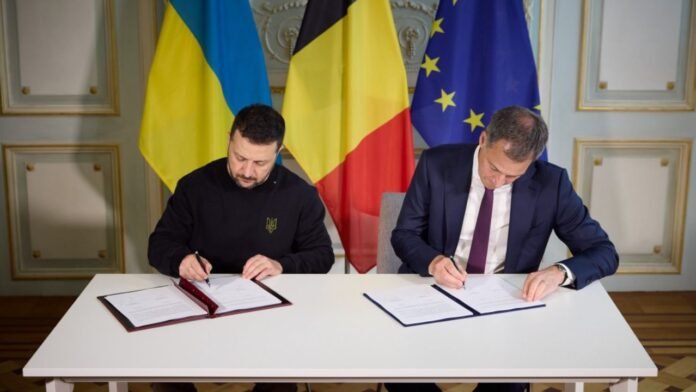Ukraine is expected to sign a landmark security agreement with the European Union soon, which is a significant development. The deal will solidify military aid to Ukraine for many years to come, creating a solid framework for defense cooperation and support. This impending agreement is essential to Ukraine’s continuous attempt to strengthen its security infrastructure amid ongoing geopolitical tensions.
The media reports that Kyiv has inked security agreements with 17 nations, demonstrating a widening international support network. These pacts are all-encompassing strategies to reinforce Ukraine’s defense capability and foster strategic partnerships worldwide. Kyiv is also negotiating with ten countries, proving its determination to establish an extensive security system.
We hope that these security agreements — including the upcoming one with the EU — will cover various areas related to military cooperation. Such provisions may include:
- Supplying sophisticated weaponry systems.
- Conducting joint military exercises.
- Sharing intelligence information concerning terrorism or transnational organized crime activities, providing logistical support for peacekeeping operations, etc.
Such steps are crucial because they would enable Ukraine to modernize its armed forces while enhancing its preparedness against potential threats.
The Ukrainian-European Union negotiating teams are putting the final touches on this document, whose content remains undisclosed due to confidentiality reasons. This intricate process entails detailed consultations to ensure that such an agreement comprehensively addresses both parties’ security concerns. The package is expected to include long-term military assistance programs and provisions for strategic planning and cooperative defense initiatives.
President Volodymyr Zelensky has continually stressed the importance of signing this accord in various public speeches, describing it as a “one stone, two birds” approach toward national safety. According to him, closer ties between Kyiv and Brussels will significantly stabilize the accord and deter potential attackers from taking hostile actions against it. Moreover, the current administration believes that through enhanced relations with the EU on security matters, they can help create a more stable Ukraine.
The security agreement’s context reflects broader geopolitical concerns about Eastern Europe. Kyiv has been moving to strengthen its defenses since Russia took over Crimea in 2014. Fighting broke out between Ukrainian forces and Moscow-backed separatists in the Donbas region. Many view the move as key to deterring further aggression by the Russian Federation against Ukraine. Therefore, according to international law, the nation guarantees its independence and territorial integrity, which must be protected at all costs.
Furthermore, many perceive it as a step towards closer integration with Western institutions. Even though full membership in NATO or the EU might remain a distant goal. Signing such an agreement represents significant progress. Therefore, this deal will bring Ukrainian defense standards/practices closer to those used across Europe. Promoting interoperability among armed formations under joint operations command within the standard foreign & security policy (CFSP).
Apart from military cooperation, other areas likely covered by the agreement are cyber defense, counter-terrorism, and crisis management. These aspects have become increasingly important given the current situation. Where non-conventional threats pose severe risks to Ukraine and its European partners, Brussels & Kyiv should build a robust security architecture addressing traditional and emerging challenges through joint efforts.
The future signature of the security arrangement with the European Union reveals closer relations and shared security interests. It shows the Ukrainian government that they have Europe’s backing amid continued challenges. And demonstrates a collective commitment to peace in this area. While Ukraine moves through an intricate landscape that affects its safety, this accord marks an essential step towards more robust defense systems. And a more comprehensive global partnership.


